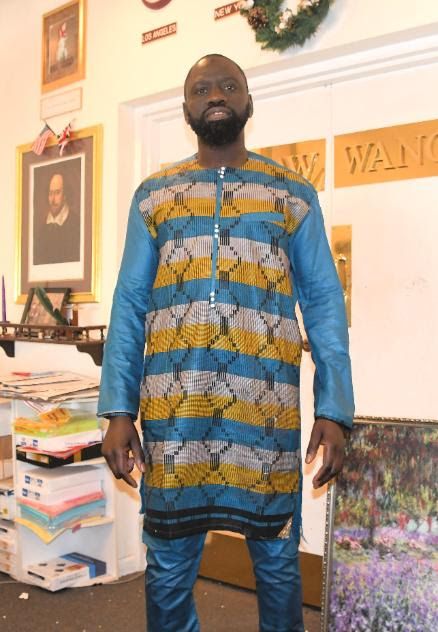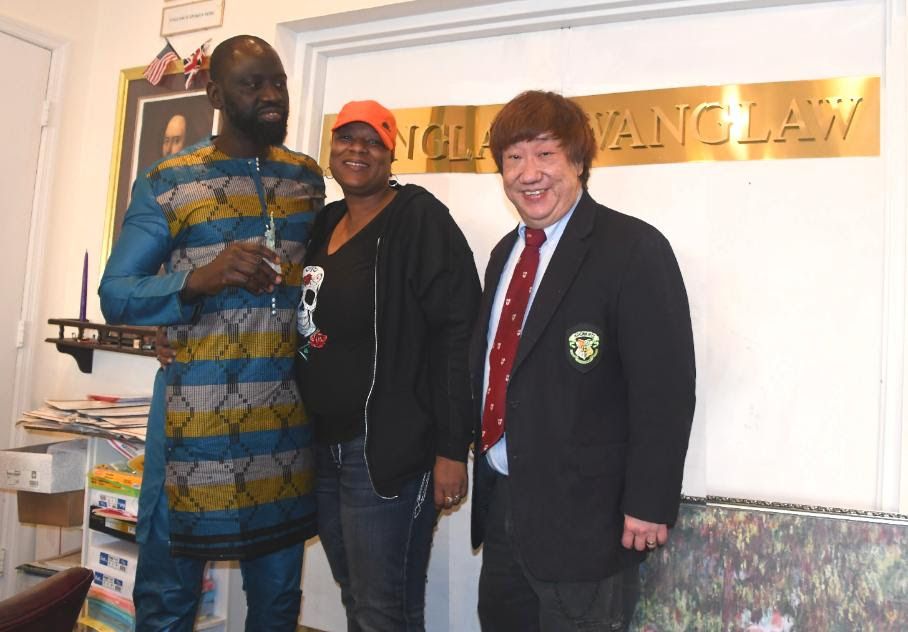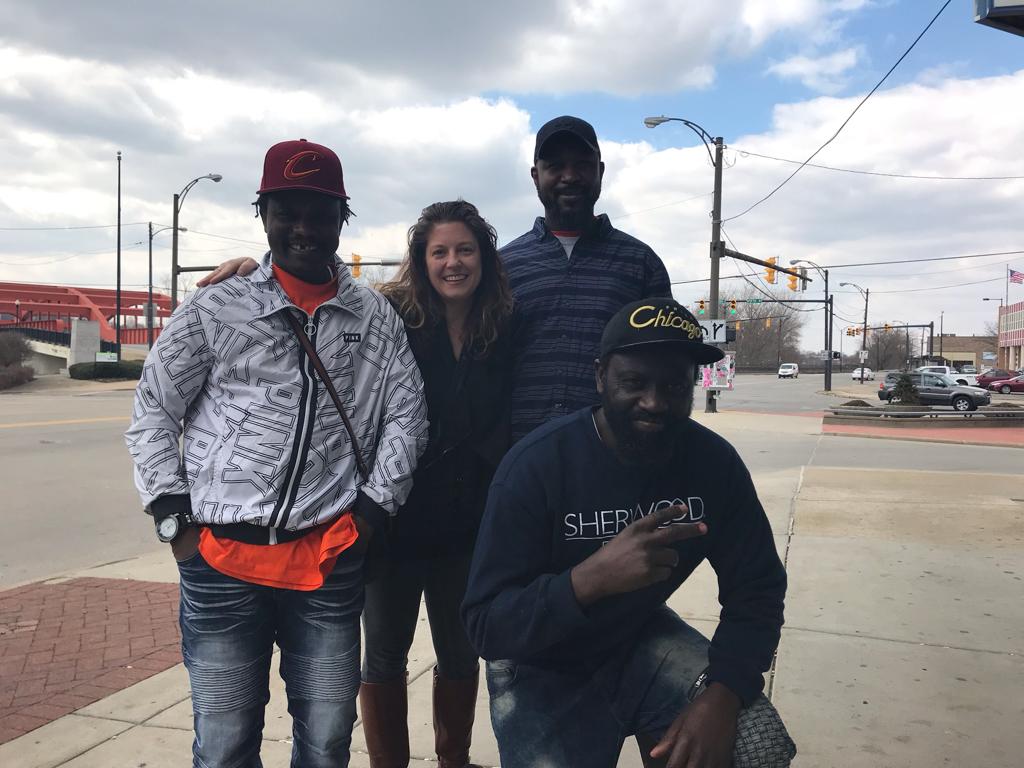by Lynn Tramonte, Director, Ohio Immigrant Alliance
How do you organize your mind to “stay sane” when you are detained in immigration jail?
How do you handle the rotten food, insults from guards, lack of freedom and fresh air, loss of income, and constant worries about the well-being of your family?
How do you deal with being moved from place to place with no notice, unsure if you are being deported permanently or “just” moved to another jail? First your money is cut off the night before. You can’t make phone calls or buy snacks at the commissary. Then, the wrist-waist-feet shackles, and “get in the van,” and if you are lucky they will tell you where you are going.
It may be a tiny airport in Toledo, Ohio, for a rickety flight to Louisiana, then Arizona and finally a charter plane to Africa. Shackled the whole time.
It might be the commercial airport in Columbus, and a United Airlines flight filled with business people and families on vacation -- and you, the only one whose destination is deportation. ICE takes the shackles off in the airport parking lot because they don’t want to “scare” the passengers.
The system is demeaning. The system is designed to break you. But Mohamed Diaby of Cincinnati did not let that happen. In fact, he organized his release.

Mohamed was born in Mauritania, in northwest Africa, but that nation does not claim him. In 2011, the country instituted a national census designed to denaturalize Afro Mauritanians, and it worked. For many years, the U.S. did not deport people to Mauritania.
But the Trump administration found a way to force Mauritania to start accepting deportees, even though the country does not consider them citizens. Still, the country refused to take Mohamed and two other Mauritanians, so they sat in jails in Ohio, waiting.
Mohamed said to the others: We have rights. They cannot keep us here forever. We need to file habeas corpus petitions.
Working with lawyers Charleston Wang of greater Cincinnati and Mark Heller with Advocates for Basic Legal Equality (ABLE), that is exactly what they did. They filed and they waited. They counted the days. They made phone calls to check on their cases. The government asked the court for an extension to respond. And another extension. And eventually, the clock ran out and all three men were released.

In an interview with the Cincinnati Enquirer, Mohamed talked about all the things his family has dealt with in the year he spent in immigration jail:
“Despite the many losses, the challenge of starting over in the United States,” he said, is a much better option than the alternative of being deported to his native Mauritania. What he lost here can be regained and rebuilt. Not so in his homeland in northwest Africa.
Mauritania is a repressive country, especially for members of Black ethnic groups like Mohamed. Thousands of people fled this country decades ago when they were violently pushed from their land. Many, like Mohamed, settled in Ohio and raised families here.
The country remains a place of repression. Slavery and human trafficking are common, tolerated. People who speak out against the government are assaulted or jailed. Men deported from Ohio to Mauritania are typically arrested and held in torturous conditions until their families are able to pay a bribe to get them released. "As soon as you get to Africa, you are either a slave or a refugee," Mohamed said.
Slowly, in the United States, we are starting to become aware of these atrocities. For too long, Mauritania has simply been “off the map” for many of us. In May, the National Underground Railroad Freedom Center in Cincinnati is holding a “community conversation” on deportations to Mauritania. Reacting to the case of Amadou Sow, another Black Mauritanian from Cincinnati who remains detained to this day, the Freedom Center’s Board Chair Damon Lynch Jr. and President Dion Brown wrote:
We challenge and encourage the community to pause and learn more about Mauritania, the deportation and protection policies in place for asylees, immigrants, and refugees, and finally to reflect.
Sow fled enslavement in 1991. He does not deserve to be enslaved in 2018. No person deserves enslavement. Citizen or not.
Meanwhile, Mohamed’s family members know they are lucky he is home. Amadou Sow and many others remain in Ohio jails today, while their families struggle.
Mohamed’s wife Sherkia, an American citizen, talked about how "He works so hard, he is a workaholic. He should have citizenship by now." His mother-in-law, Tondra Guyton, agreed: "He 's wonderful. I love them both. He's good to my daughter. He's good to me."

The Enquirer story continues:
Now, the couple plans to resume their life, including bringing their daughter back from New York. "This is the place we could come and have a better life," said Diaby, leaning his tall, lean frame forward in a small chair.
"You can survive here. This is the land of opportunity. If you work hard, you can make something of yourself. A lot of people here are good people. I want to be one of them."
Author's note: We need to free the rest of the Black Mauritanians who are languishing in immigration jail. Some have lawyers, but some do not. Please help spread the word and donate to the Black Mauritanian Legal Defense Fund today.

